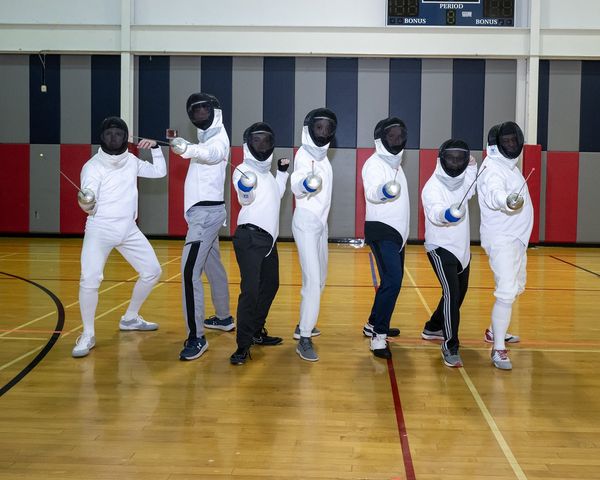‘Dick pics’ on the rise
Unwanted nude images affect ’emotional wellness’
Josselinne Torres is tired of receiving “dick pics” from men.
The single mother said men automatically assume she wants to see their penises because of her marital status.
Torres, a junior psychology major, is a victim of receiving unwanted inappropriate pictures from men, which she said is upsetting and degrading to women.
Fearing Phallic Photos
According to a study on dosomething.org, 24 percent of people age 14-17 and 33 percent of people age 18-24 have participated in some form of nude sexting.
Sending semi-nude or nude photos is more common among teenage girls, 22 percent of which reported sending such images, whereas only 18 percent of same-age boys reported sending sexual photos.
Torres said Snapchat has become the leading app for sexting since its release. But in an article on Businessinsider.com, Snapchat co-founders claimed in a written document sexting is not the reason the app was created.
After receiving inappropriate snaps, Torres made her account private.
“Apparently there is an app (where) people can find Snapchat names on,” she said. “People who usually look into the app are pervy guys.”
Torres said it got to the point where she would take a screenshot of the photo and send it to the man’s significant other.
“I would send it, not to be mean, but because they shouldn’t be doing that, and I want it to stop,” she said.
Torres said when she receives an unwanted picture, it makes her feel like she isn’t being respected.
“People assume it’s what I want,” she said. “And it’s not.”
While nearly 70 percent of teenagers who sext do so with their significant others, 61 percent of all sexters who have sent nude images admit they were pressured to do it at least once, according to dosomething.org.
“Asking for a photo is a different story,” Torres said. “But if you start sending me pictures saying, ‘you want this?’ you are going to be blocked.”
According to Justice.gov, Section 2256 of Title 18, United States Code, defines child pornography as “any visual depiction of sexually explicit conduct involving a minor.”
“I knew this guy who met a girl online who looked a lot older and they had a sexual relationship,” Torres said. “Her parents found out and she was 16 instead of 21… he is now classified as a sexual predator.”
Torres said before Snapchat and the sudden increase in social media apps, sexting wasn’t as popular as it is now.
“I know when I was in middle school, I didn’t really hear about people sending pictures,” Torres said. “You haven’t really hit puberty yet. Now I go to high schools and middle schools and the things you hear are awful.”
Girls are walking around with their midriffs showing and wearing “booty” shorts and then wonder why older men send them photos, Torres said.
“I have a daughter, and she is 2,” she said, “and I don’t even want to imagine what her generation is going to be like.”
Staff counselor at the Counseling Center Alyssia Haymond said sexting is becoming “a norm” in society.
“It goes off the exposure theory,” she said. “The more that we are exposed, the more we think it’s a norm and the more we are compelled to fit that norm.”
Haymond said people might sext because they feel they need external validation, which is what people get from posting something online.
Research suggests 87 percent of sexting occurs within committed romantic relationships or established dating relationships, she said. These relationships come with a protective barrier and trust, which lets people put their guard down.
“Trust is a component, but it almosts serves as a negative,” Haymond said.
She said one thing to consider if someone is sexting and sending an explicit message without consent is that it can be considered sexual harassment.
“I think setting very clear boundaries is important,” Haymond said. “Also seeking action when appropriate, especially if this individual is sending photos without consent.”
If someone sees nude photos or explicit photos on any social media, they should report it, Haymond said. It might not have been the sender’s fault.
“We have a tendency to blame the person who sent the image for where the image ends up,” Haymond said, “but we also need to look at the people taking the image and spreading it wherever they like … and breaking the (trust) agreement between the two parties involved. ”
Carnal Consequences
A freshman in the Romain College of Business, who asked to remain anonymous, said her ex-boyfriend asked if she was comfortable sending nude photos via text. She wasn’t.
Instead, the two decided to exchange sexual text messages, which he then showed to 10 of his friends.
“That’s when our relationship went downhill and ended,” she said. “It just breaks your trust with somebody when something like that happens, and you can’t recover from it.”
A few months later, she received a Snapchat request from a guy she had been messaging on social media.
“We were Snapchatting and then randomly out of nowhere he sent me this picture of his dick,” she said. “I sent him a photo back saying, ‘Please don’t ever do that again. I don’t know you.’”
He replied with a video of himself masturbating.
After that, she said she quickly deleted him and felt extremely uncomfortable, especially because she didn’t know him.
“A couple of weeks later, I was Snapchatting my best guy friend,” she said. “He sent me a pic of him holding his dick saying, ‘Baby, I’m about to cum,’ and I instantly sent back, ‘Do you realize what you just sent me?’ and it turned out he had been sexting his girlfriend… After that, we didn’t make eye contact when we saw each other.”
She was devastated that a single picture ruined a good friendship.
“(Sexting) ruins your relationships, whether it’s a dating relationship or friendship,” she said.
Women don’t want “dick pics,” she said, even if they say they do, it’s probably just to laugh at and show their friends.
“I think it’s because (people) that do it want a confidence boost,” she said. “But it really just backfires.”
The FBI conducted a study in 2010 which stated one in five teenagers reported sending or posting nude or semi-nude photos of themselves. By 2012, another study by the FBI found 28 percent of teenagers surveyed said they were involved in sexting.
According to the study, sexting can be a major offense and people can end up in jail depending on the severity.
According to an online article at FBI.gov, a 15-year-old boy received 12 months of probation for forwarding a picture of his private parts to a 13-year-old girl’s cell phone.
“An 18-year-old high school graduate committed suicide after a nude photo she had transmitted via her cell phone to her boyfriend also was sent to hundreds of teenagers in her school. Other students, who apparently continued to forward the image, allegedly harassed the girl,” the article states.
Katherine Champagne, an assistant program director of student wellness at the university, said not knowing the age of the person on the receiving end of a text can be frightening.
“I think about the impact it has on emotional wellness,” Champagne said. “If you’re sending something to someone and it gets in the wrong hands, it can be extremely stressful and devastating.”
People can’t always know the person they send pictures to isn’t going to screenshot it, Champagne said, and it’s possible it could resurface later.
“If it gets into the wrong hands, you might see cyber bullying,” Champagne said, “and that can be really stressful and an unfortunate thing. And the stress behind someone seeing something you didn’t want to be seen … when that trust is broken it can have emotional consequences.”
Champagne said the best thing to do before sending a photo is ask, “Is this something I want my friends and family to see?” or “Will I be OK if this gets out in the open?”











